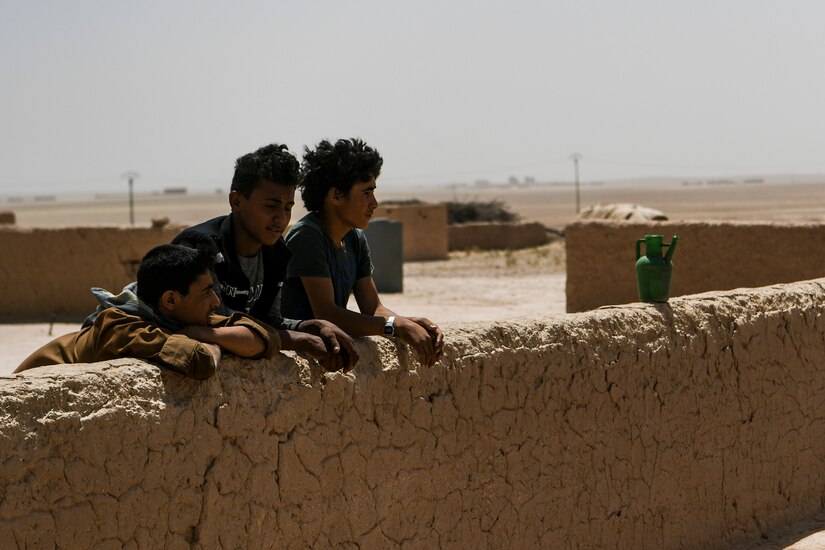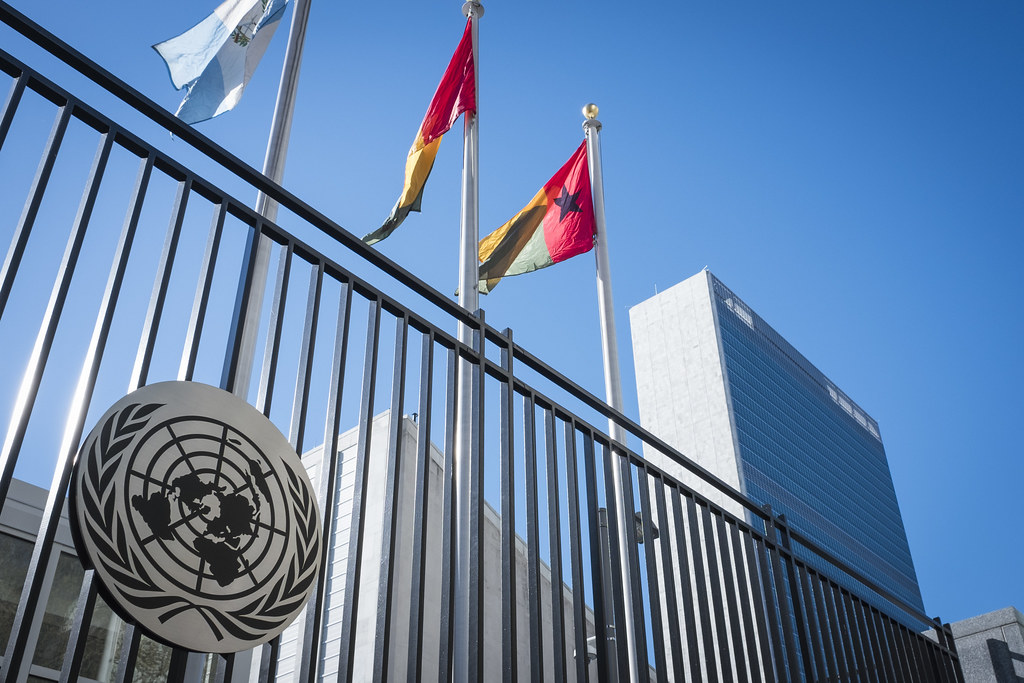It is vital that we avoid the temptation to combine law enforcement and media censorship under the banner "internet freedom,"

Just yesterday marked the one-year anniversary of the "full liberation" of Iraqi territory from the Islamic State. For more than three years, the terrorist regime oppressed large parts of Syria and Iraq, carrying out public executions and often publishing videos of them on social media.
The Islamic State's use of the internet to spread extremist propaganda in various ways has raised important questions about how information on the internet is or ought to be regulated.
The Islamic State's use of the internet to spread extremist propaganda in various ways has raised important questions about how information on the internet is or ought to be regulated.
I remember vividly the day I was surfing the internet, reading a little bit of news in order to figure out what the big deal was about this "ISIS" thing. I was eighteen; old enough to feel like I should probably know what was going on in the world, but innocent enough to skate by with only a small portion of actual awareness.
 I remember coming across a video marked "EXTREMELY GRAPHIC," and labeled as an ISIS execution. Morbidly fascinated by the title, my curiosity soon turned to deep horror as I watched a calmly filmed, precisely cut and artfully arranged video of Jordanian pilot Moath al-Kasasbeh being burned alive while locked inside a cage in the desert.
I remember coming across a video marked "EXTREMELY GRAPHIC," and labeled as an ISIS execution. Morbidly fascinated by the title, my curiosity soon turned to deep horror as I watched a calmly filmed, precisely cut and artfully arranged video of Jordanian pilot Moath al-Kasasbeh being burned alive while locked inside a cage in the desert.Needless to say, I've never been the same since.
Due to the unprecedented rate at which the internet has grown since its inception in 1990, the world's political and social standards have struggled to keep up. National governments have widely different views on exactly what type of access their respective citizens should possess to the web, which houses information of every kind on virtually every subject.
The Dangers of Censoring Media
Some might criticize any form of media censorship at all. In fact, most attempts at censoring media throughout history have backfired to some degree.
Almost two and a half millennia ago, a certain vagabond philosopher was executed by hemlock poisoning, essentially just for refusing to censor his teachings to Athens' youth. Without ever even writing down a word of his own philosophy, Socrates has been immortalized as one of the founding philosophers of Western thought.
| Title page of the Index Librorum Prohibitorum, The list of books censored by the Catholic Church |
In 1933, the Main Office for Press and Propaganda of the German Student Union announced a uniform "Action against the Un-German Spirit," which resulted in nationwide book-burning ceremonies (a rather overt form of censorship). However, the fall of Nazi ultra-nationalism in Germany led to the founding of the United Nations and the addition of the Universal Declaration of Human Rights into international law.
Nevertheless...
Despite the troublesome history of censorship, there are a few distinct factors that set the Internet apart as a medium.
While the written and spoken word can quite effectively alter the people's convictions and exhort them to action, the internet is not just a medium of communication; it is an arena for business, entertainment, and creative property, etc. And while censoring communication and free speech is borderline oppressive, it is almost universally agreed that some aspects of the internet (such as the black market or child pornography) ought to be smothered.
In a slightly less extreme sense, I would argue that prohibiting any illegal act that can be committed via the internet does not fall into the category of censorship, but of law enforcement. While books can change minds, they don't directly inflict pain or injustice.
It sounds simple to separate freedom of expression and freedom to commit crime, but in practice, the internet has proved to be quite slippery in that department. One issue is that national borders are far more penetrable online than any other medium. This makes any sort of censorship difficult to accomplish without going to extreme measures. As well, different countries have different laws and standards when it comes to things like hacking (we can see this in the current situation concerning North Korean hackers) or even just free speech. Differing standards cause any consensus on criminal internet usage to be elusive for the international community.
Eyes Wide Open
This is where I return to my own experience with the dark side of internet ubiquity. After watching that video, I recall being gripped by two emotions. The first was an almost childlike disbelief in what I had just witnessed--an urge to pull away, to block the images from my memory, and to return to my relatively pristine life in northern Colorado.
The second was an indescribable rage at the cold and calculating use of such a horrific act as political propaganda. From that moment on, I've felt a deeper connection to international affairs than ever before, and from researching to voting to volunteering, I've begun to see how a little bit of honest human compassion and a good dose of righteous indignation have the power to change my life, and presumably the life of anybody else. ISIS's propaganda may have attracted some followers, but from my experience, I would wager that it definitely generated several enemies as well.
While I understand the temptation to combine law enforcement and media censorship under the banner "internet freedom," it is vital that we avoid this generalization. As we continue to eliminate criminal activities on the internet, we must be careful not to let those efforts infringe upon the human right of free speech, and conversely, we cannot let our hunger for freedom open the door too far for internet abuse.

What can governments really do to effectively regulate it? I'm not really sure, to be honest--I'm not a politician. But as a computer programmer, I know that I can try to create specific ways to accomplish both goals--to make sensitive information more secure and copyrighted property less vulnerable but safe information even more accessible. While this may not answer the Big Question, it's enough to give me a direction for my career and what I consider a good cause to work towards.
Image Credits:
- Children outside their home in Dashisha, Syria, taken by Staff Sgt. Corey Hook. In the public domain as photo taken by US Army staff as part of official duties.
- This media is in the public domain in the United States because it solely consists of material created and provided by Voice of America.
- Index Librorum Prohibitorum, archival photograph. In the public domain in the U.S., expired author copyright term.
- UN headquarters, licensed through CC BY NC ND 2.0, credit to Manuel Elias on Flickr.

I think your comments are very relevant to the time we are living in. With information giants like Google and YouTube we are sort of limiting our information sources and putting a lot of trust in these tech giants. An example of this is an interviewer on YouTube named Dave Rubin has his videos demonetized despite the millions of viewers he captures. He has also had subscribers report that they were "mysteriously" unsubscribed from his channel. Many people call Dave Ruben a Neo-Nazi and white nationalist and claim his channel should be taken down for "hate speech". When in reality he is a proud gay, liberal centrist, who enjoys engaging in debate with conservatives. He is a strong supporter of free speech, and civil dialogue. It worries me when people like Ruben are being limited in their right to free speech; who will be next?
ReplyDeleteThis is a very interesting issue that I feel like I have always known about in the back of my mind, but never considered my opinions on it. We have heard recent statements by Dr. Burton quoting that "access to the internet is a human right". But at what point should it be regulated? Who will do it? At what point does internet regulation go too far? The Catholic church during the renaissance period is an example of the corruption of something that was initially intended to do good. I don't know the answer to this question either, but I do know that it will be very difficult to regulate without people claiming that they are having their right to the freedom of speech taken away.
ReplyDelete